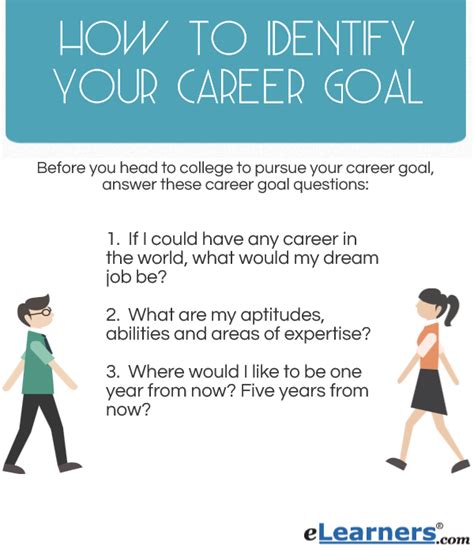In this comprehensive guide, titled “Overcoming Common Job Search Challenges: Tips and Advice,” we delve into essential strategies to face these hurdles head-on. We will begin by discussing the importance of “Identifying Career Goals” to set a clear course, move onto “Crafting an Effective Resume” that stands out in a sea of candidates, and finally touch upon the critical aspect of “Networking and Making Connections,” which often opens doors to potential job leads. Join us as we explore actionable tips and advice to transform your job search from a daunting task into a triumphant journey.
Job Search Challenges: IDENTIFY CAREER GOALS

Embarking on the journey of identifying career goals is a pivotal step towards achieving professional fulfillment and success. It is, however, a task that requires profound introspection and a strategic approach. The challenge often lies not only in recognizing what we want from our careers but in mapping out a realistic and practical path towards reaching those aspirations. By taking the time to understand our own strengths, weaknesses, interests, and values, we can craft a more focused and effective job search that aligns with our long-term objectives.
When contemplating your career goals, it is essential to consider where you want to be in the next five, ten, or even twenty years. This vision of the future can serve as a guiding star, a beacon that informs all subsequent decisions and strategies. Long sentences can help in elaborating on the nuances and diverse facets of career planning, ensuring that when setting these goals, they are not just wishes but actionable objectives that you will actively work towards.
An essential aspect of identifying career goals is to undertake a self-assessment to determine your skills and passions. Such self-assessment provides invaluable insights that can shape your career trajectory, guiding you towards roles and industries where you can thrive and make the most significant impact. This self-awareness is crucial because it prevents the common pitfall of pursuing paths that do not resonate with your core competencies or personal inclinations, therefore enabling a more satisfying and productive career.
Furthermore, setting SMART goals — Specific, Measurable, Achievable, Relevant, and Time-bound — is a proven method to ensure that your career objectives are practical and attainable. These criteria help to refine broad aspirations into focused targets, making it infinitely easier to track progress and maintain motivation over time. As such, each goal becomes a building block in the edifice of your professional journey, providing structure and clarity to an otherwise daunting endeavor.
In summary, the task of identifying career goals is not to be taken lightly. It forms the groundwork upon which all other efforts, such as crafting an effective resume, networking, and making connections, rest. By dedicating the necessary time and thought to this process, you are not just planning for a career; you are planning for a future that is rich in purpose and satisfaction.
Crafting an Effective Resume

The process of Crafting an Effective Resume is paramount to any job search, serving as the crucial gateway to securing an interview. Your resume not only showcases your work history and education but also provides a platform for articulating your core competencies and unique value proposition. To ensure that your resume stands out in the competitive job market, you must tailor it thoughtfully to each position you apply for, diligently aligning your skills and experiences with the requirements of the job description.
Lastly, do not underestimate the power of aesthetics. The visual appeal of your resume can significantly influence how it is received. Utilize clear headings, bullet points, and consistent formatting to enhance readability. A well-designed resume reflects attention to detail and an appreciation for clarity—qualities that are often sought after in job candidates. To sum up, Crafting an Effective Resume is a careful balance between content, clarity, conciseness, and a touch of creativity to ensure that your professional narrative not only resonates but also remains memorable in the vast sea of job applicants.
Networking and Making Connections

In the intricate tapestry of career advancement, the art of networking and making connections often emerges as a pivotal thread, effectively intertwining opportunities with professional growth. As such, it becomes invaluable for individuals to master this intricate skill, which, at times, can appear daunting yet proves to be profoundly rewarding. Engaging in meaningful conversations, strategically nurturing relationships, and continuously expanding one’s professional network are unequivocal steps toward constructing a robust career scaffold.
Embracing the challenge of networking begins with recognizing that each interaction is a potential gateway to new horizons. It is essential to approach these opportunities with a dual mindset that encompasses professional acumen as well as authentic personal interest. The journey of networking demands one to be proactive, to step outside comfort zones, and traverse the vast expanse of industry events, seminars, and online platforms with a clear and purposeful intent. To truly excel in making connections, it is not about the mere quantity of handshakes or exchange of business cards, but the depth and quality of the relationships fostered therein.
Frequently Asked QuestionsWhat are some common challenges faced during a job search?
Common challenges include extended waiting times for responses, writing a compelling resume and cover letter, networking effectively, lack of experience, high competition for positions, keeping motivated through rejections, and navigating through a large number of job platforms.
How can I improve my resume and cover letter?
Tailor your resume and cover letter for each application, emphasizing relevant skills and experience. Use clear, concise language and quantify achievements when possible. Seek feedback from professionals and utilize online resources or professional services to refine your documents.
What strategies can be used to network effectively?
Networking can be improved by attending industry events, joining professional organizations, engaging on professional social media platforms like LinkedIn, and reaching out to alumni or professionals in your field for informational interviews. It’s also important to have an elevator pitch ready and to follow up with new contacts.
How do I handle job rejections and maintain motivation?
To handle rejections, remind yourself that it’s a part of the process, seek constructive feedback, and use it to improve. Stay positive and motivated by setting small, achievable goals, celebrating progress, maintaining a routine, and staying connected with supportive peers or mentors.
Is it important to customize the job application for each job?
Yes, customizing the job application shows the employer that you’ve taken the time to understand the company and the role. It demonstrates your interest and can set you apart from other candidates who submit generic applications.
What if I don’t have much work experience?
If you’re low on work experience, highlight transferable skills, volunteer work, internships, or educational projects. Emphasize your eagerness to learn and grow in the role. Consider further skill-building through online courses or certifications relevant to your field.
How can I use job platforms efficiently?
To use job platforms efficiently, set up targeted alerts for the types of roles you’re interested in, use filters to narrow down your search, and apply through platforms that allow you to keep track of your applications. Regularly update your profile and engage with the platform’s networking features.








